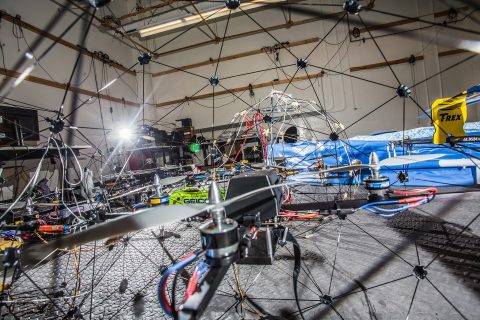Mechanical Engineering (MEng)
Program overview
The MEng in Mechanical Engineering is a course-based program for practicing engineers who want to further develop their skills and enhance their ability to solve complex technological problems. The program provides access to state-of-the-art laboratories and research centres for industrial control, computer-aided vehicle engineering, composites and computational fluid dynamics. Join a diverse body of students from all over the world in an internationally-renowned department that will support you in your research and provide graduate training at the forefront of your field. Students interested in pursuing a doctorate should apply to the MASc program instead.
Program structure
Degree Requirements
The requirements described here are in addition to the general degree requirements for the Master/Magisteriate in Engineering (MEng) .
Fully-qualified candidates are required to complete a minimum of 45 credits.
Please see the Engineering Courses page for course descriptions and prerequisites.
Mechanical Engineering MEng (45 credits)
| 24 | credits minimum chosen from courses listed below: |
| 21 | credits minimum chosen from the elective courses listed below:
Engineering and Computer Science Courses
Mechanical, Industrial and Aerospace Engineering Courses
Project/Report (Prerequisite - Permission from Department is required)
or any 1-credit course within the GSPD 600 Professional Development Courses , or a course from Topic Area E09 - Professional Leadership Skills
|
Additional Notes:
|
Admission requirements
Proficiency in English
Proficiency in English. Applicants whose primary language is not English must demonstrate that their knowledge of English is sufficient to pursue graduate studies in their chosen field. Please refer to the English language proficiency page for further information on requirements and exemptions.
Application process
Application deadlines

FALL
July 1 (Canadian resident)
March 1 (International)

WINTER
November 1 (Canadian resident)
July 1 (International)

SUMMER
March 1 (Canadian resident)
November 1 (International)
Priority will be given to complete applications submitted by the deadline. In some cases, programs may continue to accept applications as long as there is space available.
International students: Considering the waiting period involved in meeting the entry requirements to Canada and Quebec, we strongly encourage international applicants to apply early and submit supporting documents prior to the deadline.
Tuition & funding
Tuition and fees
Tuition and fees of the program may depend on your student status, among other key factors. Estimate these costs based on the most common situations.
Awards and funding
Funding packages are generally available for students in thesis-based programs. Course-based students may be eligible for a number of donor awards, and may consult with their department for program-specific opportunities.
Out-of-province students
Get $3,000 in special funding for non-thesis master's programs. Learn more
Other programs of interest

Strengthen your skill set through engaging research in industrial control, computer-aided vehicle engineering, composites and computational fluid dynamics.
Department
Department of Mechanical, Industrial and Aerospace Engineering
Faculty


